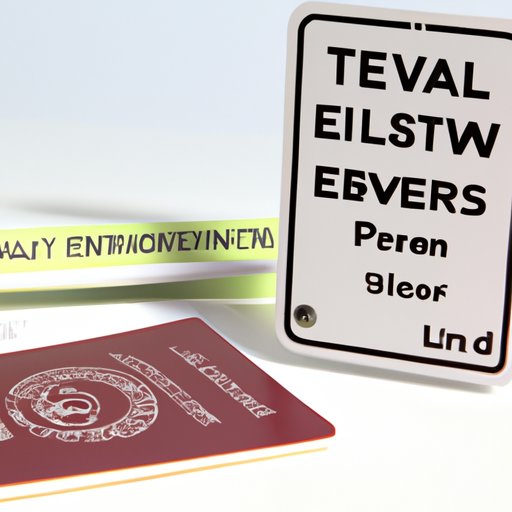Introduction
Starting a cleaning business can be a great way to make money while providing a much-needed service. While it may seem daunting at first, there are a few key steps you can take to help you get your business off the ground. This article outlines the key steps involved in starting a successful cleaning business.
Identify Your Target Market and Goals
Before launching any business, it’s important to identify who your target customers are and what your goals are. Doing this will help you focus your efforts and create a clear path to success.
Define Your Target Market
Your target market is the group of people most likely to use your services. To determine your target market, consider factors such as age, income level, geographic location, and type of home or business. For example, if you’re targeting residential homes, you might focus on affluent neighborhoods, whereas if you’re targeting commercial businesses, you might focus on offices in the financial district. Once you have identified your target market, you can tailor your marketing messages to appeal to them.
Determine Your Goals
Once you have identified your target market, it’s time to set goals. These can include short-term goals, such as signing up a certain number of clients within the first year, and long-term goals, such as expanding into other cities or increasing revenue by a certain percentage. Setting goals will help you stay focused on the big picture and measure your progress.
Create a Business Plan
A business plan is an essential tool for any business. It should outline the purpose of your business, the products or services you will offer, and how you plan to achieve your goals. Here are some elements to include in your business plan:
Outline Your Business Structure
This section should include information about the legal structure of your business, such as whether it will be a sole proprietorship, partnership, limited liability company (LLC), or corporation. You should also include information about ownership and management roles.
Estimate Startup Costs
Startup costs can include anything from licensing fees and equipment purchases to advertising costs and insurance premiums. Researching these costs ahead of time will help you determine how much capital you will need to launch your business.
Draft a Financial Plan
Creating a financial plan is essential for any business. This plan should include projected expenses, such as payroll and overhead, as well as strategies for generating income. It should also include information about how you plan to manage cash flow and keep track of finances.

Obtain Necessary Licenses and Permits
Before you can legally operate your business, you must obtain the necessary licenses and permits. The requirements vary by state and municipality, so it’s important to research local regulations before applying for any licenses or permits.
Research Local Requirements
The first step is to research local regulations. Depending on where you live, you may need to obtain a business license, tax identification number, or other approvals. Contact your local government office to find out what is required.
Apply for Business Licenses
Once you have determined which licenses and permits you need, you can apply for them. In some cases, you may need to fill out an application and submit it to your local government office. In other cases, you may need to attend a hearing or meeting to discuss your business plans.
Consider Insurance Coverage
Insurance is another important factor to consider when starting a business. Liability insurance can help protect you from potential lawsuits, while workers’ compensation coverage can help cover medical expenses for employees who are injured on the job. Talk to an insurance agent to determine the types of coverage that are best for your business.
Purchase Supplies and Equipment
Once you have obtained the necessary licenses and permits, it’s time to purchase supplies and equipment. The type of supplies and equipment you need will depend on the type of services you offer.
Select Supplies Based on Budget
When selecting supplies, consider your budget and the types of services you offer. You will also want to research different suppliers to find the best prices. Popular supplies include cleaning solutions, vacuums, mops, rags, and sponges.
Choose Appropriate Equipment
In addition to supplies, you will need to purchase equipment for your business. This could include things like pressure washers, steam cleaners, and carpet shampooers. Consider renting or leasing equipment if you don’t have the budget to purchase it outright.
Market Your Cleaning Business
Once you have purchased supplies and equipment, it’s time to start marketing your business. Developing a comprehensive marketing strategy is essential for any business, especially one that is just starting out.
Develop a Marketing Strategy
Start by creating a marketing plan that outlines your objectives and goals. This plan should include information about who your target customers are, what services you offer, and how you plan to reach them. You should also include a budget for marketing activities.
Use Digital Platforms to Promote
In today’s digital world, it’s important to leverage digital platforms to promote your business. Create a website, set up social media accounts, and use search engine optimization (SEO) tactics to increase visibility. You can also use email marketing and pay-per-click (PPC) advertising to reach potential customers.
Consider Traditional Advertising Options
In addition to digital platforms, you may also want to consider traditional advertising options, such as print ads, radio spots, and television commercials. These can be more expensive than digital options, but they can help you reach a wider audience.
Conclusion
Starting a cleaning business can be a great way to make money while providing a much-needed service. By following these steps—identifying your target market and goals, creating a business plan, obtaining necessary licenses and permits, purchasing supplies and equipment, and marketing your business—you can ensure that your business gets off to a successful start.
(Note: Is this article not meeting your expectations? Do you have knowledge or insights to share? Unlock new opportunities and expand your reach by joining our authors team. Click Registration to join us and share your expertise with our readers.)
